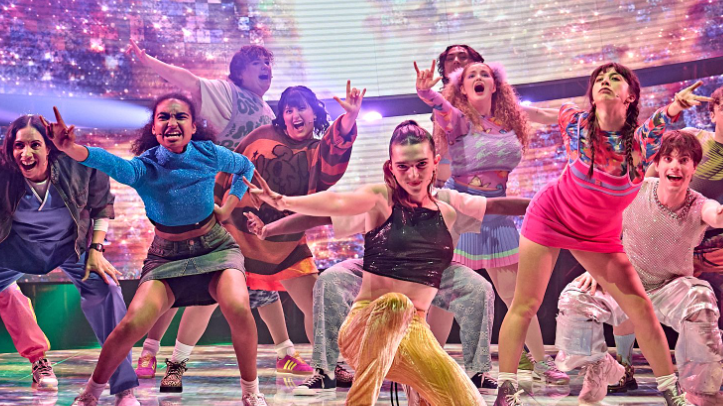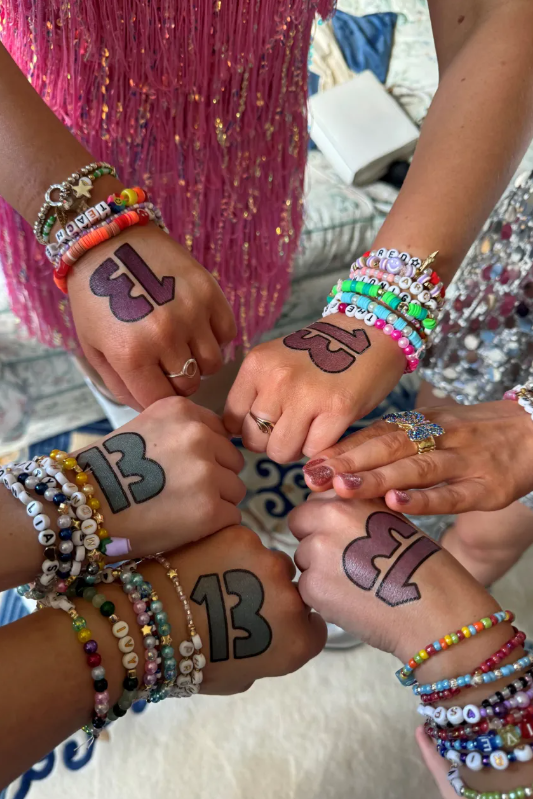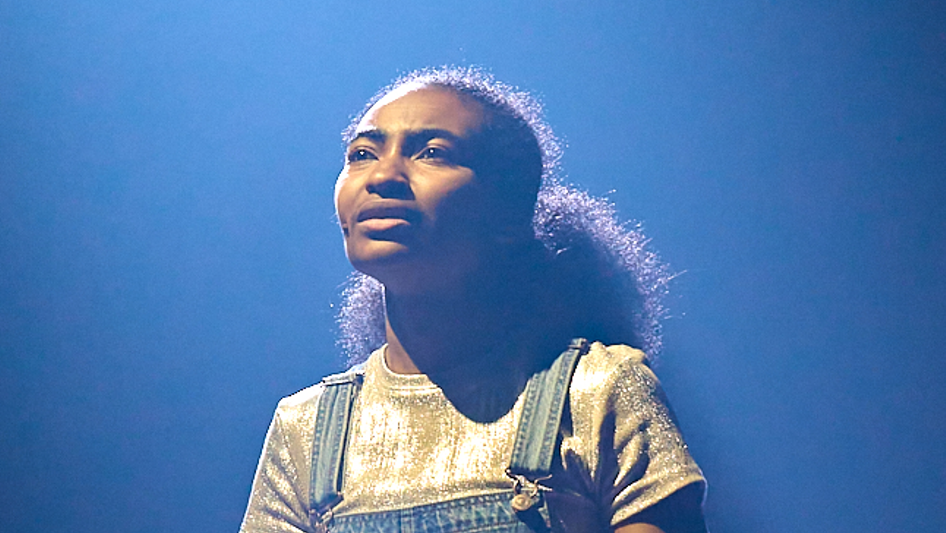Fangirls aren't silly, they're powerful, says playwright

- Published
From causing seismic activity at Harry Styles concerts to Swifties boosting the UK economy during the Eras Tour, the power of teenage female pop fans shouldn't be underestimated.
For playwright Yve Blake, the danger of dismissing these youngsters is the inspiration behind her new comedy musical Fangirls.
Following the life of 14-year-old Edna, who is obsessed with a boy band resembling One Direction, Fangirls explores "what it means to love something without apology".
The idea came to Blake in 2015 after she witnessed a pivotal moment in the lives of thousands of teenage girls - Zayn Malik left One Direction.
Despondent and heartbroken fans across the world were shown weeping inconsolably - but for Blake, something even more interesting caught her eye.
"People started calling these young girls crazy, hysterical and psycho," the writer explains. "I asked myself the question - would the same words be used to describe male football fans?
"The girls screaming at the top of their lungs at Taylor Swift concerts are cringe, but men running around with their tops off and fist pumping the air because England scored a goal are just supporting their country.
"It seems like there's definitely a double standard there."

Swifties often paint the number 13 on their hand as it's the singer's lucky number
But the musical doesn't just praise fangirls.
"It's a lot more nuanced than that," Blake explains. "We look at the dark side of worshipping celebrities as well as praising the decision for girls to make an empowered choice to love something free of judgement.
"I'd describe it as a glittery trojan horse."

Yve Blake came up with the concept for her show almost a decade ago when Zayn Malik left One Direction
The hit musical premiered in 2019 in Blake's home country, Australia, and has been met with critical acclaim across three runs.
Its stint at the Sydney Opera House was awarded five stars by Time Out, external, which said "it deals with the exquisite pain of being a teenager, of having little agency and lesser respect from the world around you".
In a four-star review, the Guardian, external called it "witty and agile" and said it "balances serious social reflections with a loving twinkle in its eye".
Blake says the show "retains its fearlessness, cheekiness and naughtiness from Australia, but the screws have really been tightened".
She is both excited and nervous about bringing the show to the Lyric theatre in Hammersmith, west London.
"Brits are definitely a lot more repressed than Aussies, so I don't know if they can match the energy of previous runs," Blake says.
At one point in the show, the stage is transformed into a concert venue and audience participation is encouraged.
"Theatre is so polite normally, but Fangirls is about unleashing your feral excitement and screaming like you're 14 again."
In Australia, Blake had no problem getting the audience involved - she tells the BBC that an older lady in the front row accidentally flashed the actors because she "was so in the moment and excitedly dancing".
'Victim of my own cringe'
Playing the lead role of Edna is Jasmine Elcock, who got a golden buzzer on Britain’s Got Talent in 2016.
The singer was 14 when she reached the talent show final, and this is her first major acting role.
"I'm excited for people to be able to see the world through the eyes of a young girl," Elcock says.

Jasmine Elcock plays 14-year-old Edna, who is obsessed with a boy band called Heartbreak Nation
As a self-proclaimed fangirl, Elcock can relate to the feelings and emotions that the play delves into.
"I am a mega fangirl and at the moment I am absolutely obsessed with Little Simz. I can spend hours in my bedroom dancing and singing along to her," she says.
In comparison, writer Blake explains she was a "victim of my own cringe growing up".
"I was socially embarrassed to be a fangirl so I definitely repressed it as a teenager," she says.
"As an adult that's what made me interested in exploring this topic - I woke up to the fact that my cringe was a symptom of internalised misogyny because it's only the things that teenage girls like that are ever called cringeworthy."
It seems that for Blake, this play is a way for her to tell her younger self, and all teenage girls out that, that it's OK to let lose and embrace being a fangirl.